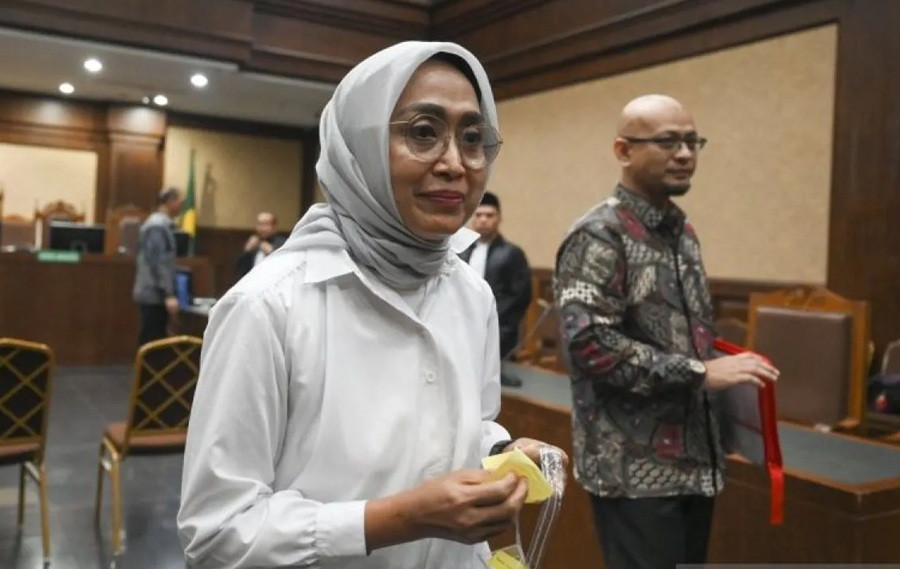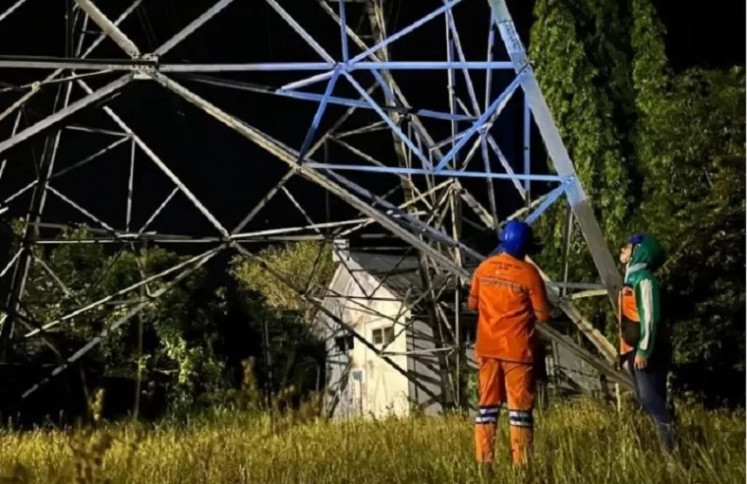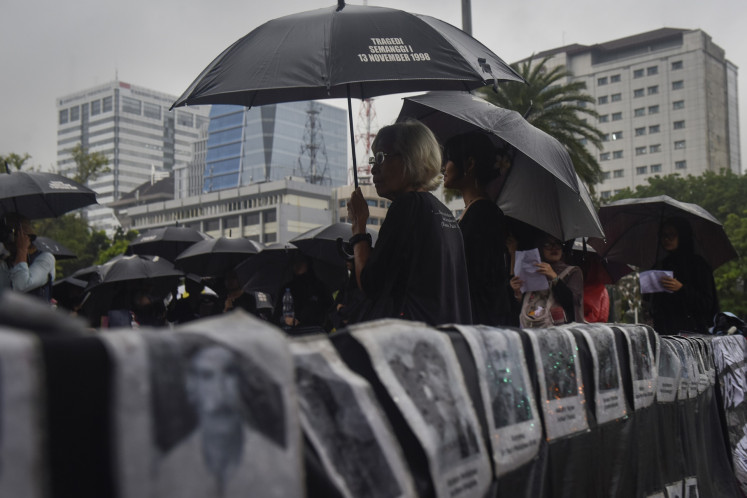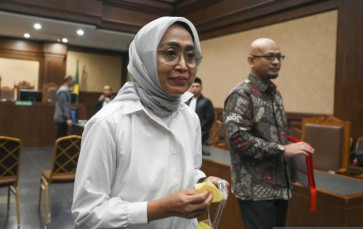Popular Reads
Top Results
Can't find what you're looking for?
View all search resultsPopular Reads
Top Results
Can't find what you're looking for?
View all search resultsJustice granted for online plaudits is not proper justice
Law enforcement agencies seem to operate not according to the rhythm of law, but according to the rhythm of politics and online sentiment.
Change text size
Gift Premium Articles
to Anyone
T
here is one phrase that never appears in law textbooks, yet has become the most decisive principle in this Republic: No viral, no justice. Justice, once described by Bertrand Russell, a Nobel laureate in literature, as “a quiet pillar of civilization”, now resembles a confused pedestrian at a busy intersection, glancing left toward the Criminal Law Procedures Code, and right toward the court of public opinion.
Two recent events illustrate this perfectly: the presidential abolition granted to former trade minister Thomas Trikasih Lembong and the recent rehabilitation of Ira Puspadewi, former president director of state-owned transportation company PT ASDP Indonesia Ferry. Two different cases, handled by two different law-enforcement bodies, yet one identical pattern emerges: public outcry first, state action later. Our legal machinery acts like an old engine—it only starts when push-started by public outcry.
It is as if the legal system no longer asks, “What is the evidence?” but rather, “Is it trending number one yet?”
President Prabowo Subianto granted abolition to Tom after a wave of public opinion dismissed prosecutors’ charges as an attempt to criminalize an intellectual figure. Tom is not just an economist; he is a former minister too stubborn to play in the shadowy rooms of transactional politics. When he was indicted, the public smelled something foul. When he received clemency, the nation breathed a sigh of relief, while quietly asking: why only now? The moral verdict is clear: the decision was correct, but the timing was flawed.
The case of Ira carries the same bitterness. The public believed that as ASDP CEO she had benefited the state, yet she was charged with enriching others, only to receive a presidential rehabilitation on Tuesday.
It is an irony that can only occur when the due process of law runs backward: not justice leading the way, but political suspicion. The Corruption Eradication Commission (KPK), tasked with safeguarding the law, slipped on its own doorstep. And again, it was the public knocking loudly to set things right.
At this point, the credibility of the Attorney General’s Office (AGO) and the KPK is cracking, not because of a single case but because of a pattern: They seem to operate not according to the rhythm of law, but according to the rhythm of politics and online sentiment. Our legal system has lost its metronome.



















